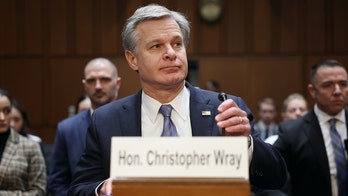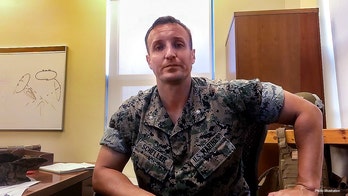Russia, China share an interest in ‘disrupting global world order’: Kurt Volker
Former U.S. Ambassador to NATO Kurt Volker discusses growing threats from Russia and China on ‘Fox & Friends Weekend.’
Vice President Kamala Harris’ history as a federal prosecutor instilled in her a direct, sometimes adversarial communication style that reportedly alienated Ukraine President Volodymyr Zelenskyy during their first private sit-down, leaving him "disgruntled" and defensive just days before Russian troops invaded his country.
Their tense sit-down was chronicled in "War," the new book by Bob Woodward. In the book, Woodward details some of the most consequential foreign policy and security challenges overseen by President Biden during his first term. Among them, Russia’s 2022 invasion and ongoing war in Ukraine.
Fox News obtained an early copy of the book, which is available in bookstores today.
As Woodward reports, Biden deployed Harris to the Munich Security Conference in February 2022, less than a week before Russian President Vladimir Putin's troops commenced their full-scale invasion of Ukraine – with the sole mission of convincing Zelenskyy that the Russian incursion was imminent, based on all available U.S. intelligence and the hundreds of thousands of troops it had confirmed Russia had been amassing nearby, including some 40,000 soldiers near the Belarusian border.
Harris was to demonstrate unified support for Ukraine from the U.S. and NATO, and to help Zelenskyy accept the fact that this was, indeed, happening.
However, Woodward reports, aspects of that mission backfired – at least behind closed doors.
Publicly, Harris delivered a winning speech, effectively reassuring the world of the U.S. commitment to Ukraine's sovereignty and Article 5. It is considered among her major achievements as vice president.
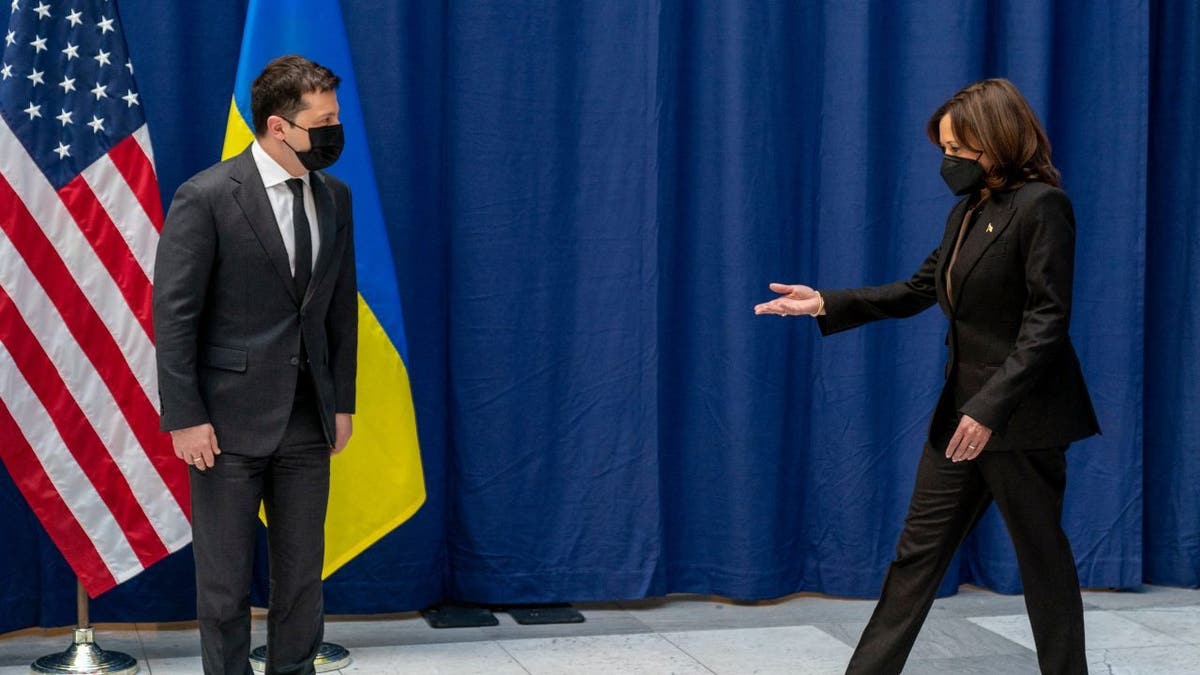
Vice President Kamala Harris and Ukrainian President Volodymyr Zelensky arrive for photos before meeting together at the Munich Security Conference. (Andrew Harnik/Pool/AFP via Getty Images)
In private, however, Zelenskyy was immediately put off by Harris’s brusque communication style and "forceful" demeanor during their sit-down, during which Harris and her national security adviser, Philip Gordon, wore masks and did not attempt to shake hands with their Ukrainian counterparts upon entering the room.
Though Germany was still under COVID-19 protocols, the icy start to the meeting "disgruntled" Zelenskyy, Woodward said, and left the Ukrainian president feeling "like he was about to be reprimanded" at a frightening and vulnerable time for his nation.
"You need to take seriously the likelihood that any day the Russians will invade your country," Harris told him forcefully.
In Woodward's telling, things between the two did not improve from there.
Harris, a successful former federal prosecutor and California attorney general, has been praised and criticized for her adversarial communication style – and it was one she reportedly employed during her sit-down with Zelenskyy, in attempt to convince him of the imminence of Russia's invasion.
TRUMP MEETS UKRAINE'S ZELENSKYY AT TRUMP TOWER, SAYS RUSSIA'S WAR MUST END WITH 'FAIR DEAL'
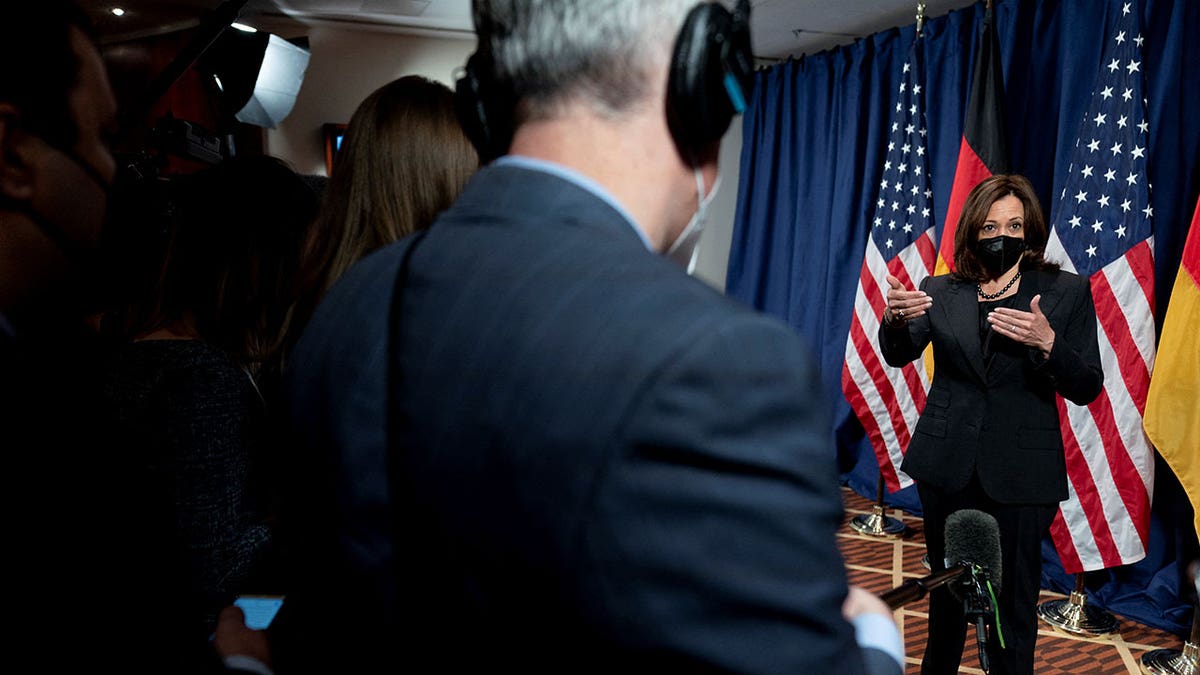
Vice President Kamala Harris speaks to reporters at her hotel after the Munich Security Conference. (Andrew Harnik/Pool via Reuters)
"Look," Harris told him, after some tense back-and-forth, "our teams will share more specific information with you but we are telling you that your numbers are wrong. You really face a potentially imminent invasion."
Rather than softening him, the meeting appeared to put Ukraine's president even more on the defensive.
As Woodward writes, Zelenskyy was hard-pressed to acknowledge the imminence of the invasion despite credible U.S. intelligence, in large part because it would create a "self-fulling prophecy" for Ukraine's nascent democracy, risking the collapse of the country's economy, and potentially, its government.
Finally, Zelenskyy relented, looking Harris in the eye and asking directly, "What do you want me to do?"
He inquired whether the U.S. would impose sanctions, close ports to Russian ships, give Ukraine Stinger or Javelin missiles or send warplanes to his country, in order to equip them for the battles ahead.
Harris’s answer did little to assuage him. "The punishment can only come after the crime," she said of a U.S. response to Russia, Woodward noted, instead advising him to "start thinking about things like having a succession plan in place to run the country if you're captured or killed or cannot govern."
Zelenskyy was urged by the U.S. to have an escape plan – one which he boldly rebuffed, choosing to remain in Kyiv in the days and weeks following Russia’s invasion.
He also turned down evacuation offers from both the U.S. and Turkey following the start of the war.
The "fight is here," he would later say from Kyiv. "I need ammunition, not a ride."
BIDEN PLEDGES $8 BILLION TO UKRAINE FOLLOWING PUTIN'S PROPOSED CHANGES TO NUCLEAR RULES
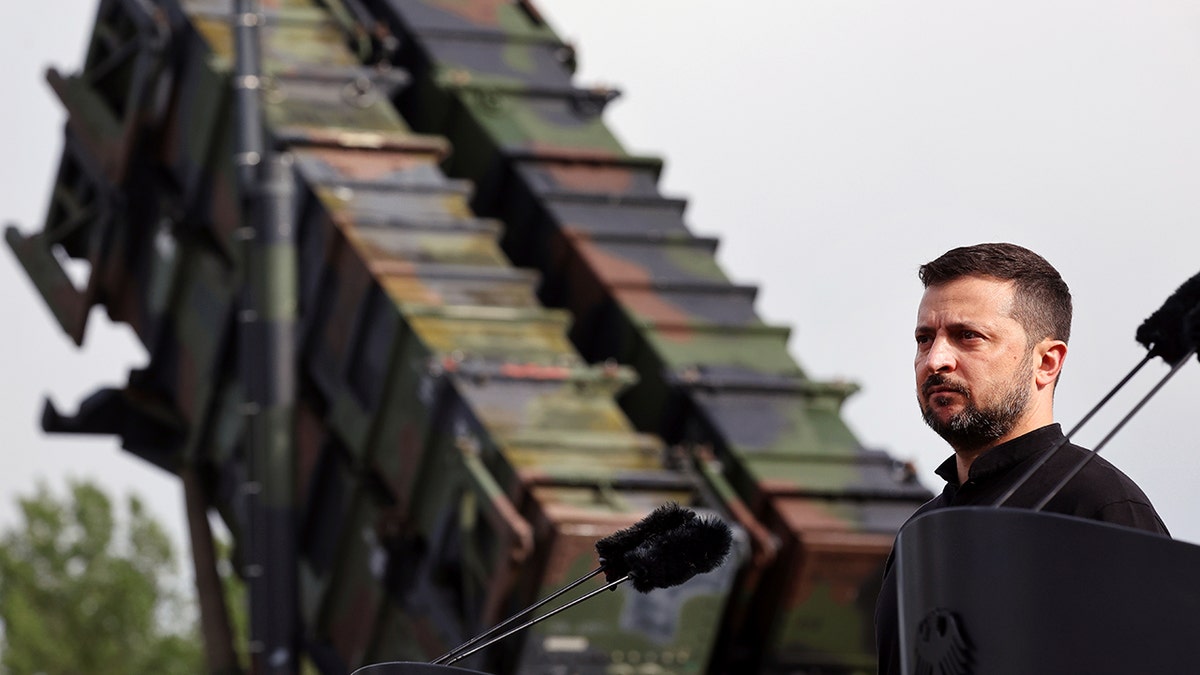
Ukrainian President Volodymyr Zelenskyy speaks to reporters in front of a Patriot air defense missile system. (Jens Buettner/dpa via AP)
CLICK HERE TO GET THE FOX NEWS APP
Harris remarked to Gordon upon leaving the meeting that that was the last time they might ever see him again.
"War" is available for purchase in stores on Oct. 15.

